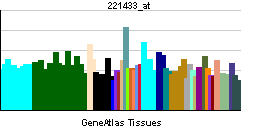Exploring the Health Benefits of Chewing Fennel Seeds After Meals

Chewing fennel seeds, known as saunf in India, has been a long-standing tradition after meals, praised not only for its flavor but also for its potential health benefits. This practice, rooted in Ayurvedic medicine, is gaining attention as contemporary nutritionists explore its effects on digestion and overall health. According to Dr. Richa Sharma, a Delhi-based nutritionist and founder of NutriWellness Clinic, fennel seeds can significantly contribute to digestive health and provide various other benefits. This article delves into five key health benefits of chewing fennel seeds after meals, supported by scientific evidence and expert opinions.
Fennel seeds contain essential oils such as anethole, fenchone, and estragole, which play a crucial role in enhancing digestive processes. Dr. Sharma emphasizes that these compounds stimulate digestive enzyme secretion, thus promoting better nutrient absorption and expediting digestion. "Fennel is especially beneficial after a heavy or oily meal," she states, highlighting its role in alleviating post-meal discomfort.
One of the most recognized benefits of fennel is its ability to reduce bloating and gas. The anti-spasmodic properties of fennel seeds help relax gut muscles, easing cramps and alleviating flatulence. This natural remedy can provide comfort to individuals who frequently experience an uncomfortable fullness after eating.
In addition to its digestive advantages, fennel seeds serve as a natural mouth freshener. Unlike synthetic mouthwashes, which may contain harmful chemicals, fennel seeds not only freshen breath but also aid in the digestive process. Dr. Sharma notes, "The sweet and refreshing flavor of fennel helps combat bad breath while simultaneously assisting digestion."
Fennel is also notable for its phytoestrogen content, which can assist women in managing hormonal fluctuations. This plant-based compound mimics estrogen and may help alleviate symptoms associated with menstrual irregularities, bloating, and mood swings. Many women have found fennel beneficial during their menstrual cycles, making it a natural alternative for hormonal balance.
Furthermore, the dietary fiber present in fennel seeds can support weight management. By promoting a feeling of fullness, chewing fennel may reduce the likelihood of unnecessary snacking between meals. This aspect of fennel can be particularly appealing to those looking to maintain or lose weight over time.
For optimal results, experts recommend chewing approximately half a teaspoon of raw fennel seeds after main meals. It is advisable to avoid sugar-coated varieties to maintain health benefits, particularly for those monitoring their sugar intake. While fennel seeds are generally regarded as safe for consumption, individuals with specific health conditions or on medications should consult their healthcare provider before incorporating them into their diet.
In conclusion, chewing fennel seeds post-meals presents a multitude of health benefits, from improved digestion and reduced bloating to enhanced hormonal balance and weight management. As more individuals seek natural remedies for health and wellness, this traditional practice continues to resonate with both historical significance and modern nutritional science. Future research may further elucidate the various health properties of fennel and its potential applications in dietary practices worldwide.
Advertisement
Tags
Advertisement





